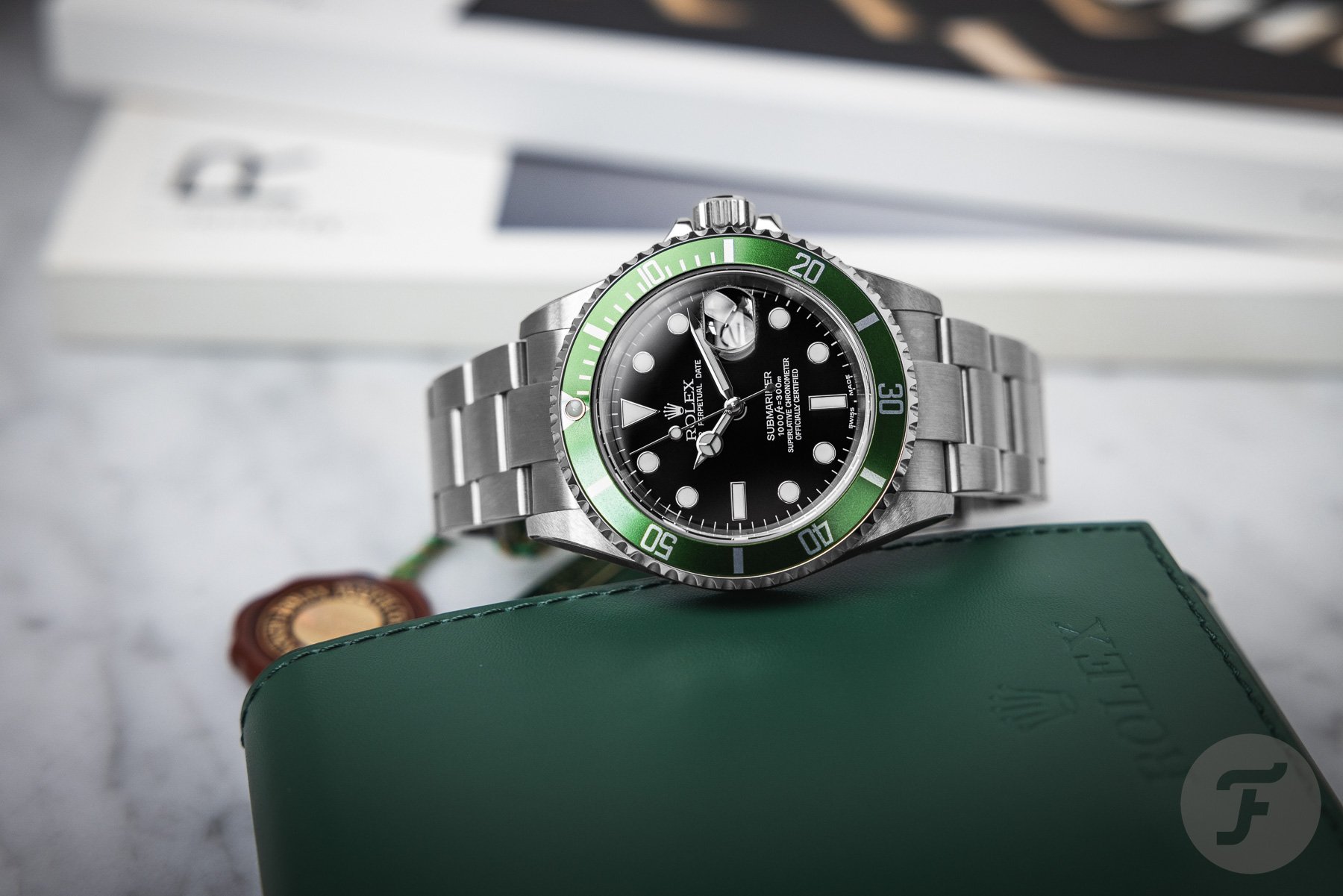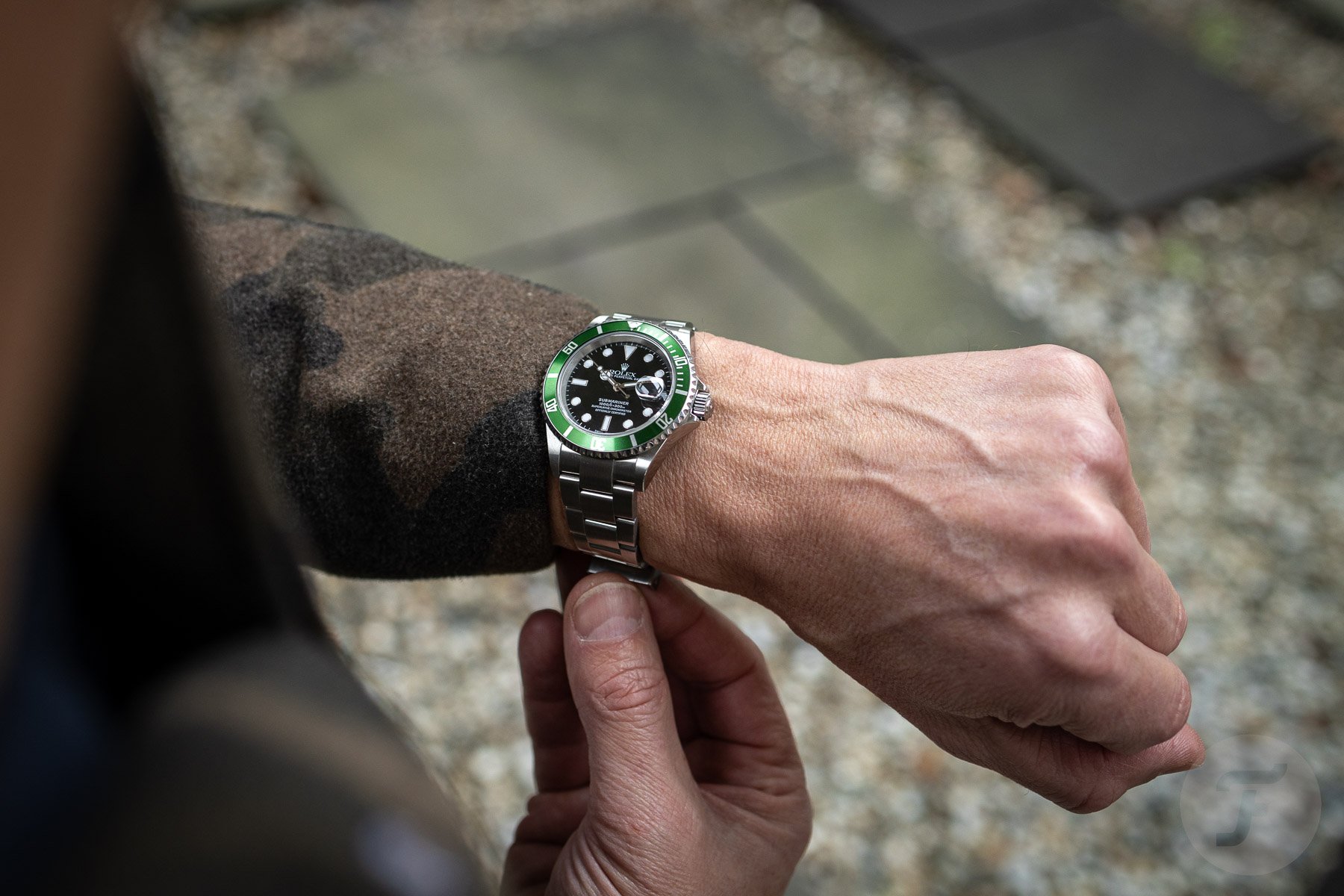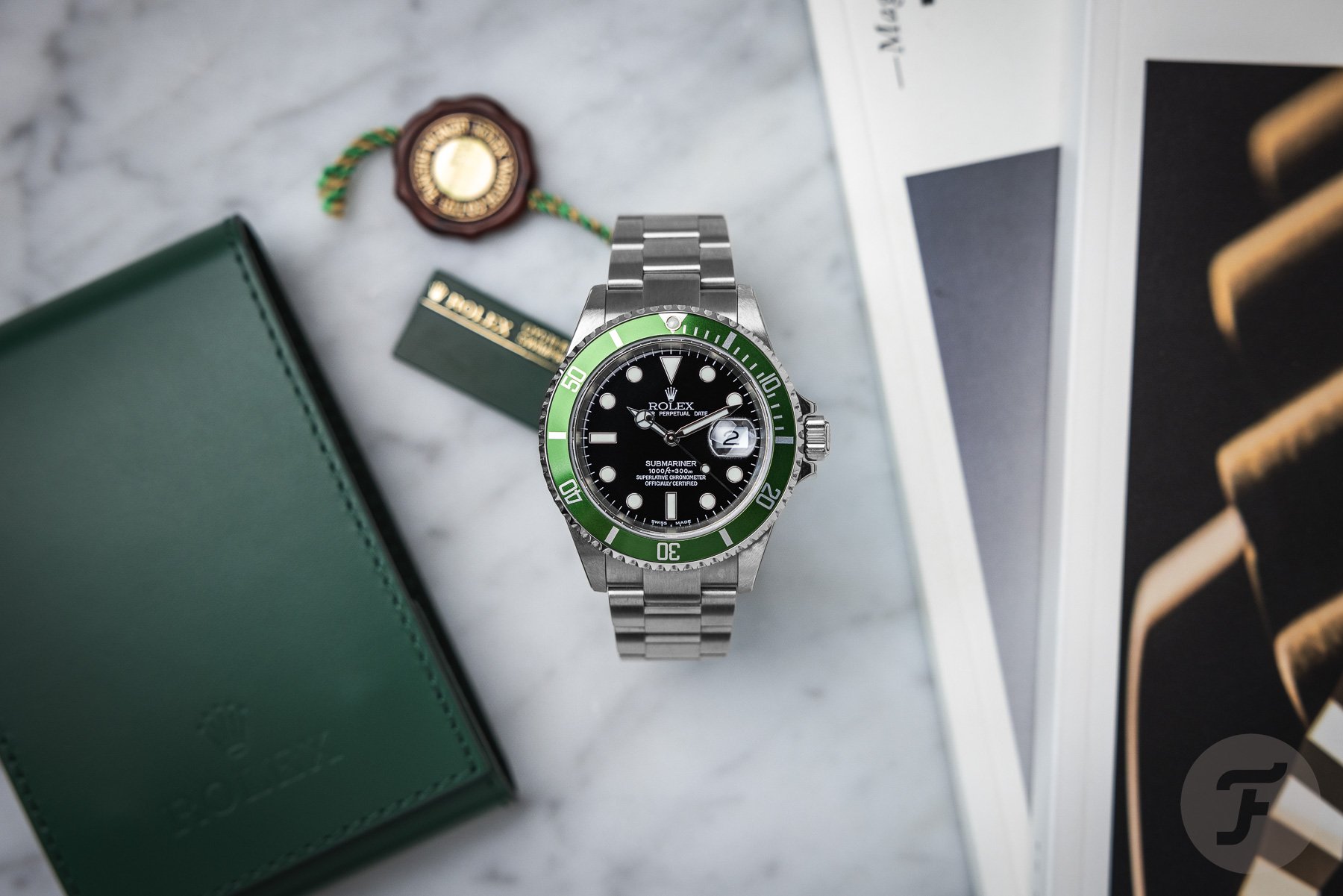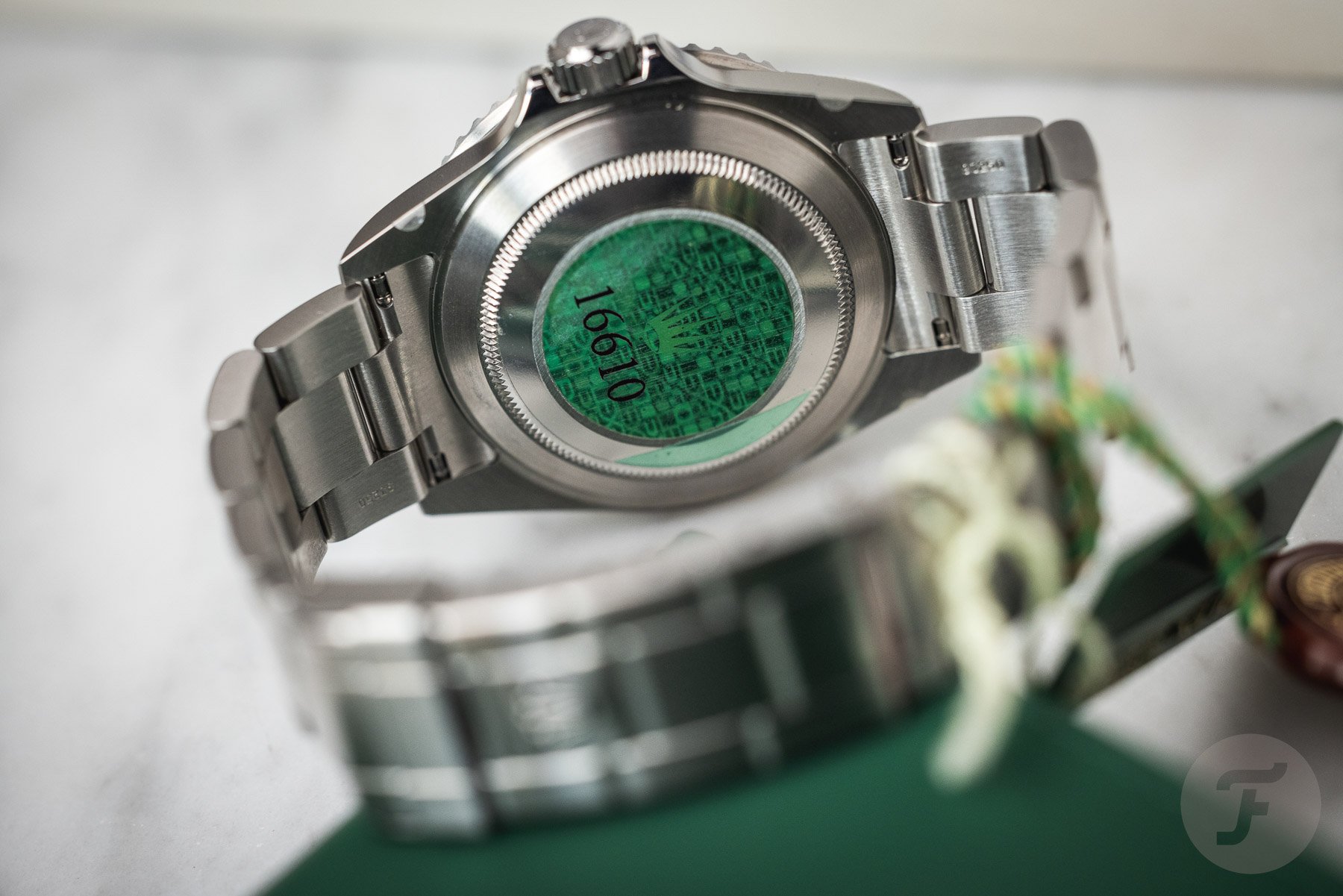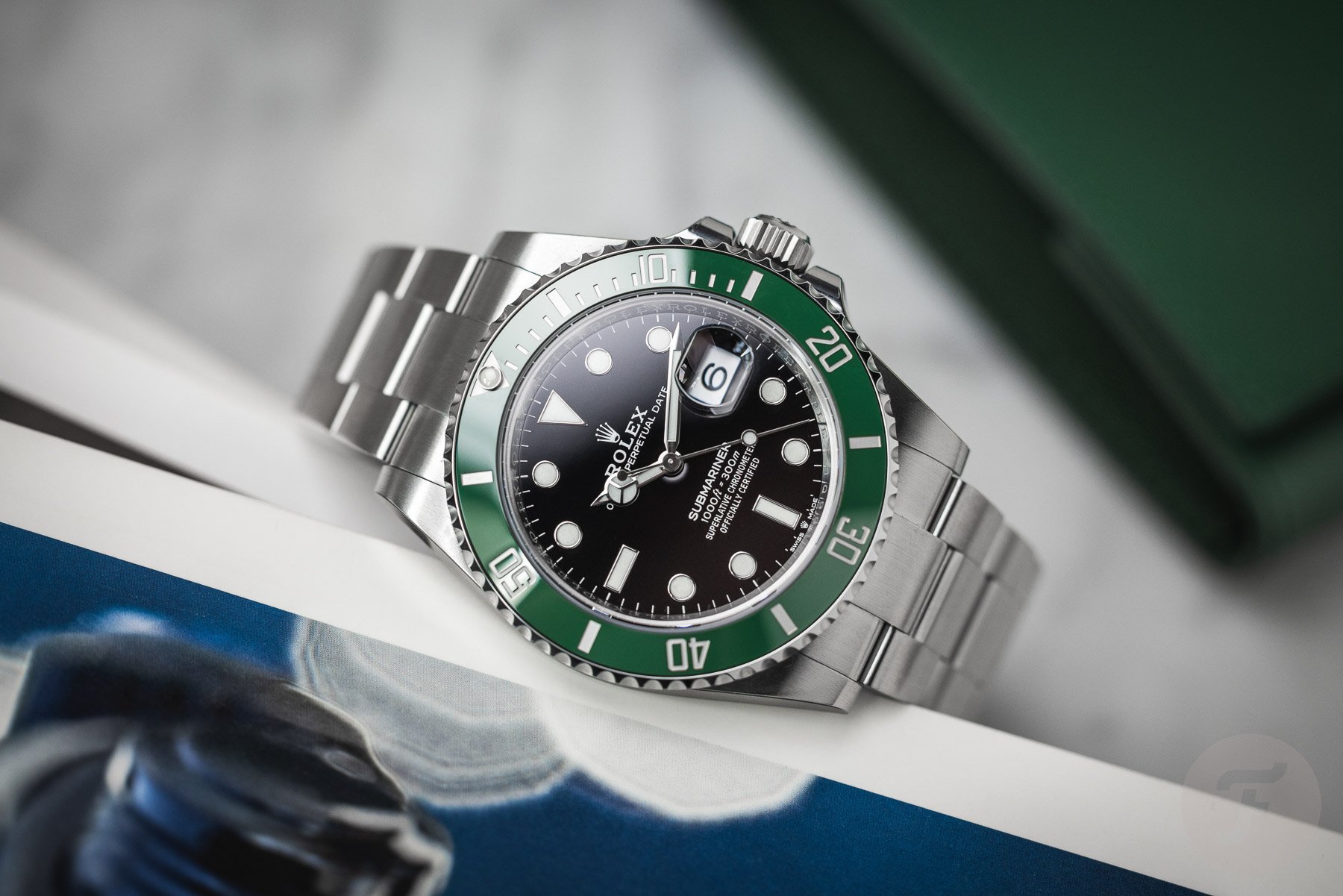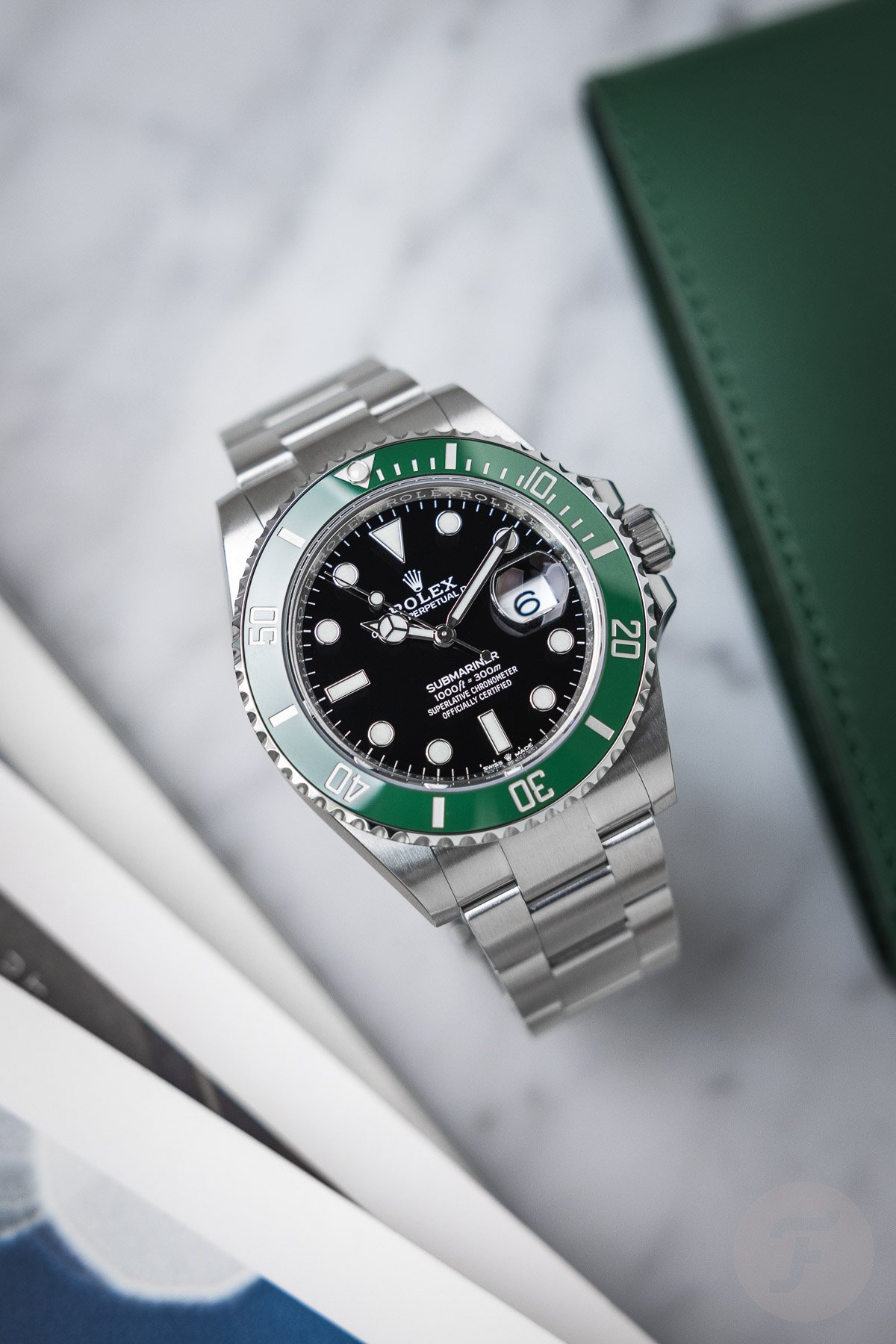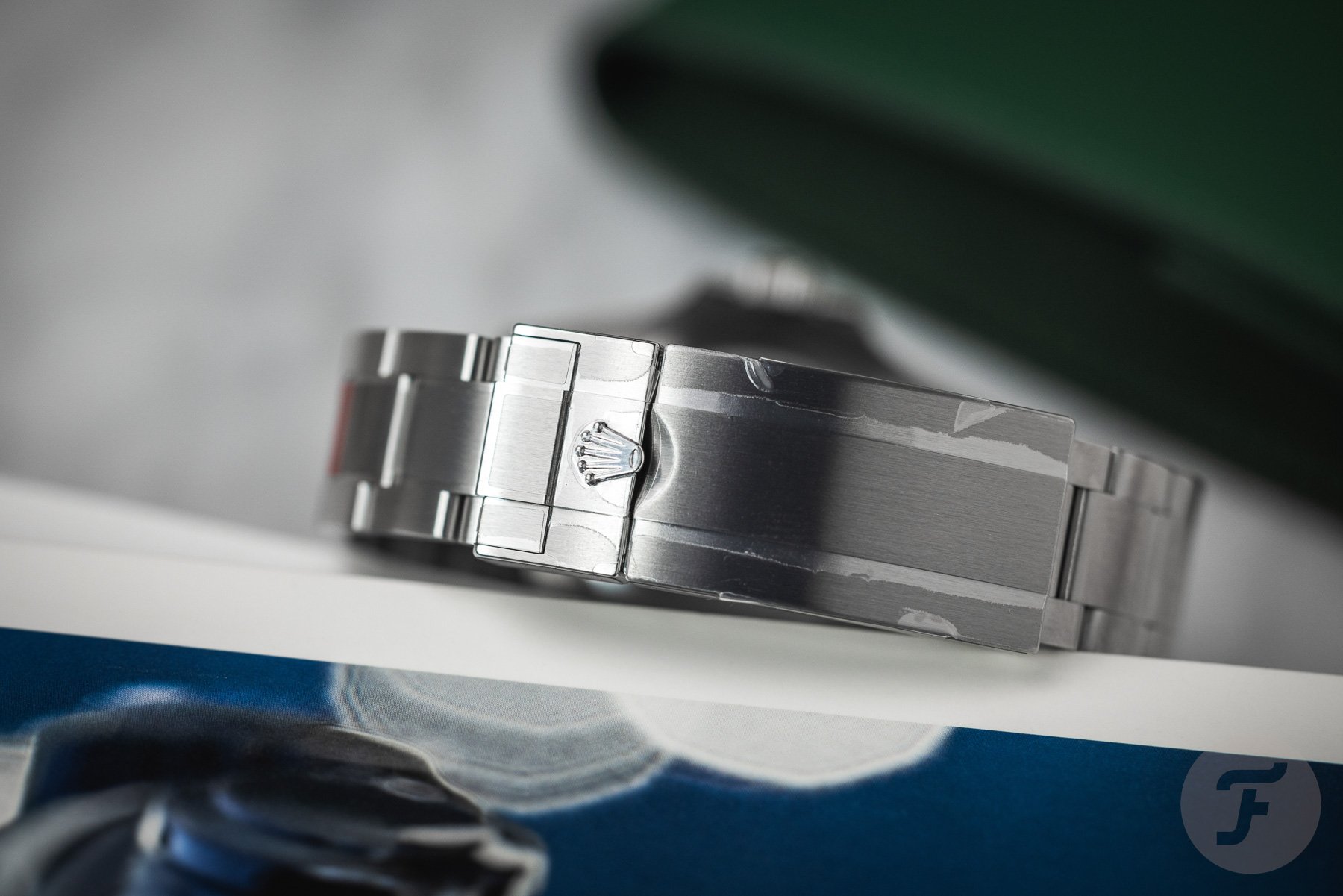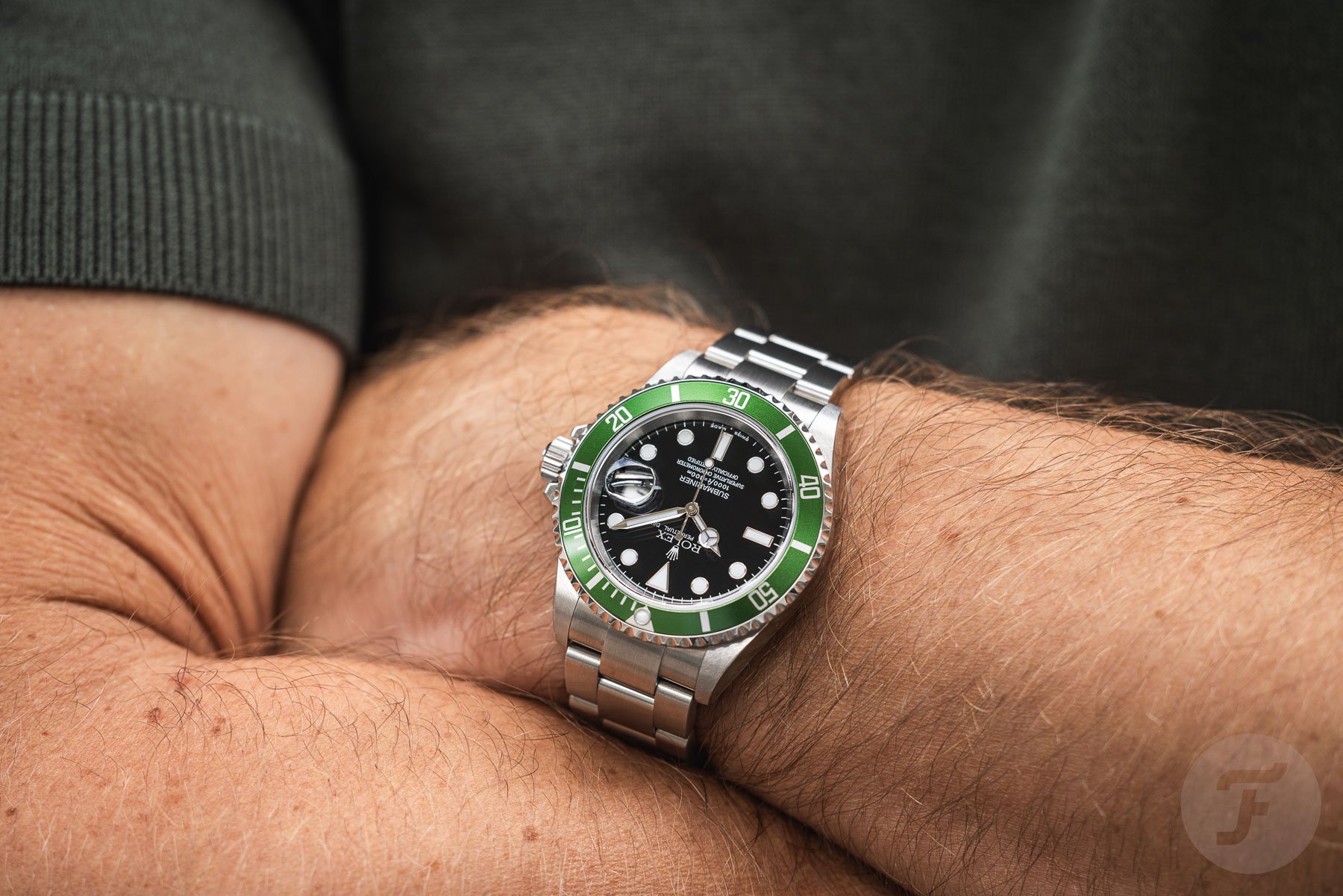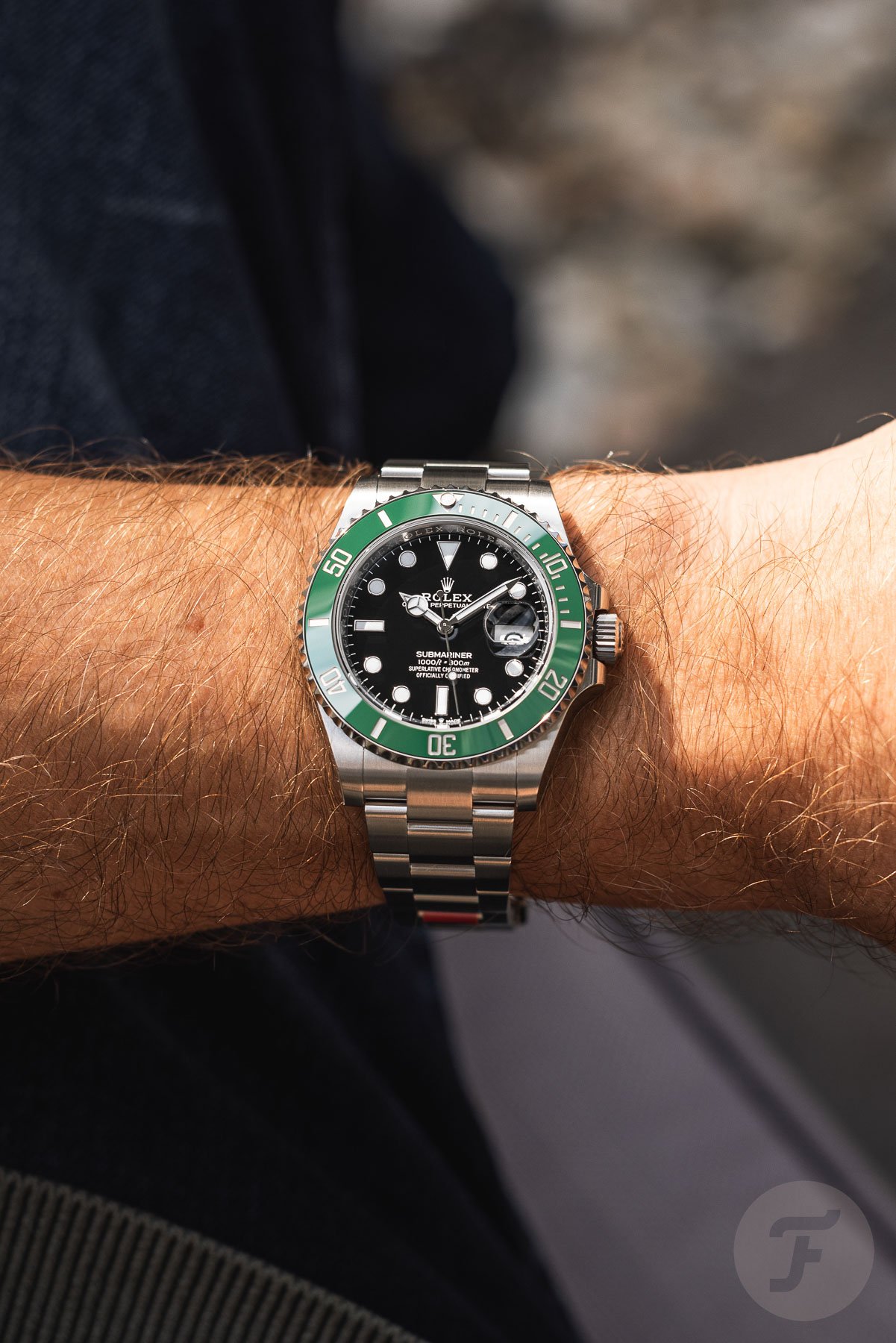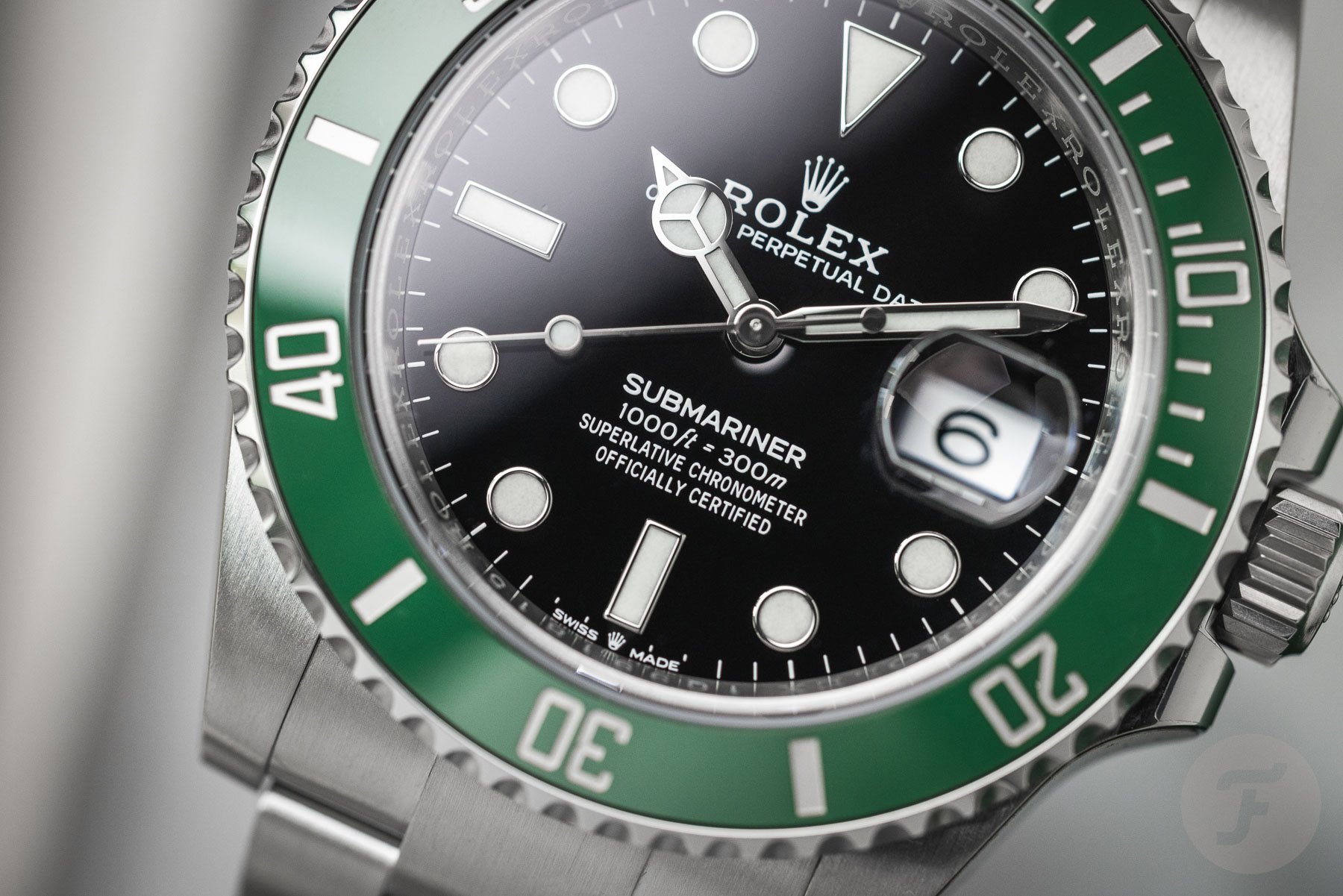Comparing Green-Bezel, Black-Dial Subs: 16610LV “Kermit” Vs. 126610LV “Starbucks”
Rolex surprised us all when the brand launched a Submariner with a green bezel in 2003. The stainless steel Sub was steadily monochromatic during the five preceding decades, so this was a bit of a shocker. The model was soon nicknamed “Kermit.” More than two decades later, it seems green is here to stay. We are in our third generation of green Submariners with the 126610LV, aka “Starbucks.” Time to do a little comparison!
As mentioned, there is a third green Submariner, the 116610LV. This so-called “Hulk” is an outlier with its green dial. This makes it look radically different from the other two. So, today, I would like to compare the black-dial models, the first and the current Lunette Verte (green bezel). If you prefer a full overview of all green Subs, have a look at this 2020 article from RJ. Let’s dive in.
The introduction of green: Submariner Date ref. 16610LV
The 16610LV marked the Rolex Submariner’s 50th birthday when it dropped in 2003. There were no celebratory engravings or any fanfare, just a green bezel insert and a different dial. The dial featured larger applied hour markers, earning it the nickname “Maxi dial.” This became part of the appeal of the model since many feel it is more balanced than the non-Maxi black version.
The bezel insert was aluminum, as it was on the regular Submariner Date ref. 16610. The green, however, was even more prone to fading. Browse a range of 16610LV listings today, and you will spot a plethora of shades of green. Some are shamrock green, while others are more emerald, and some have even faded to olive. The last type is often referred to as a “Bertolli” insert. Are you tired of nicknames yet?
Keep in mind that green wasn’t particularly fashionable in 2003. We are used to green watches now, but that is relatively recent. The color first became trendy a few years back and has since become a standard color for watches, much like black, blue, and silver. Today, it is just another color. Back in 2003, though, it was an atypical choice.
The 16610LV “Kermit”
The first-generation green Sub was in production from 2003 until 2010. Technically, it is the same watch as the regular 16610. It measures 40mm in diameter, 48mm from lug to lug, and 12.8mm thick. Its case and bracelet are made of 316L stainless steel, and water resistance is rated at 300 meters. The case still follows the old-school, slender style. That means relatively narrow lugs and small, pointed crown guards. Similarly, the bracelet is still rather old school too. It offers solid end links, but the clasp was already outdated in 2003. Competing brands offered milled clasps, but the Sub still came with a stamped example. You will also notice a distinct lighter feel to the bracelet as its center links are hollow.
Inside, you will find the Rolex caliber 3135. This 31-jewel movement is renowned for its reliability and serviceability. It was by no means new when the 16610LV incorporated it, though, as it has been around since 1988. The automatic caliber has an autonomy of 48 hours and, of course, a quickset date.
There were a few versions of the 16610LV between 2003 and 2010, each with minute changes. The most notable change happened in 2007 when Rolex introduced the laser-engraved rehaut across all its model lines.
The 126610LV “Starbucks”
Rolex did not offer the combination of a green bezel and black dial between 2010 and 2020. This was the “Hulk” era, with the Submariner Date ref. 116510LV featuring the so-called “super case” and green dial. Stylistically, the Hulk was a huge departure from the Kermit. The technical changes were significant too. The alloy went from 316L to 904L, the bezel insert became ceramic, and Chromalight replaced Super-LumiNova. The bracelet underwent a radical upgrade with solid links, a milled clasp, and a Glidelock extension.
But I promised to stick with black dials and green bezels, so we will fast-forward to 2020. That year, the Hulk was discontinued in favor of reference 126610LV. The case grew from 40.2mm to 40.5mm wide, which, rounded up, resulted in a 41mm specified diameter instead of 40mm. More importantly, Rolex adjusted the proportions to offer a little more refinement. The bracelet’s end links became wider (21mm versus 20mm), while the lugs became narrower. The crown guards took on a subtler shape as well.
Inside, caliber 3135 made way for the newer caliber 3235. The most notable changes were a greater power reserve of 70 hours and a reworked escapement. All in all, the technical differences between the 116610LV and 126610LV aren’t all that massive. The two look and feel very different, though.
16610LV versus 126610LV
I recently had the opportunity to put the 16610LV and 126610LV side by side. Although there are only 10 years between the two, it feels like it could be more. The Kermit is distinctly neo-vintage. It looks and feels like something from a bygone era. The Starbucks, on the other hand, feels thoroughly modern. It is interesting how such similar watches can exude markedly different vibes.
The first thing that stood out to me was the green bezel insert. The combination of glossy ceramic and a hue richer in blue tones makes the Starbucks pop a lot more. It is a more punchy, noticeable green, which only adds to the commanding nature of the current reference. It looks bigger, shinier, and higher end.
The Kermit, on the other hand, looks a little rougher around the edges. It is less perfect and refined. However, I arrive at the same conclusion as during my review of the 126610LN: there is such a thing as “too perfect.” Justin Timberlake is arguably a better and more refined singer than Willy DeVille was. Nonetheless, I prefer listening to the latter’s alcohol-drenched, raspy howl. I still lean towards the 16610LV over the 126610LV for the same reason. The new one is just so smooth and so clean that I kind of lose interest.
Picking a winner
Although I have a pretty strong preference for the older model, I cannot fault either. Mine is an aesthetic preference only. The great thing about Rolex’s five-digit watches is that they were already built like tanks. This means you can pick either the Starbucks or the Kermit and wear it hard, day in and day out. Sure, the former’s ceramic bezel will resist scratches and discoloration better. Then again, the latter’s aluminum one is less prone to cracking. Caliber-wise, the 3135 was already all you could ask for regarding specs and reliability.
Although I appreciate the older rattly Rolex bracelets, this is where you see and feel great improvement on the Starbucks. The current Rolex Oyster bracelet is, in my opinion, second to none. I haven’t encountered many more solid and supple-feeling bracelets, even in much higher segments. If you want the ultimate luxury feeling on your wrist, the Kermit doesn’t stand a chance against the Starbucks.
Even price-wise, there isn’t much between the two at the time of writing. The 126610LV still trades above its €11,200 retail price, with great ones in the €14,000–15,000 range. The 16610LV is slightly more accessible, with good examples sitting in the €11,000–15,000 range. In the end, it truly is a matter of taste.
While we are on the matter of taste, which reference is more to your liking? Let us know in the comments below!

